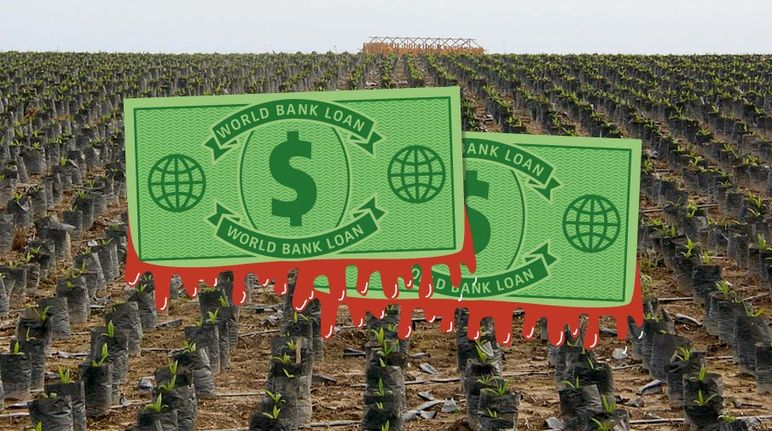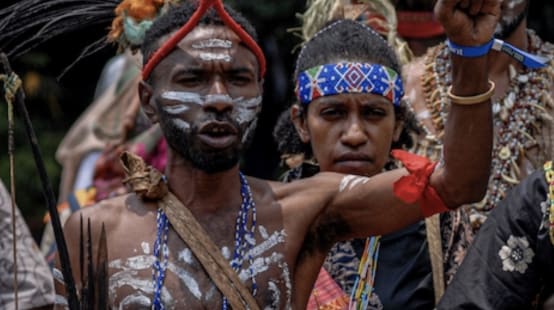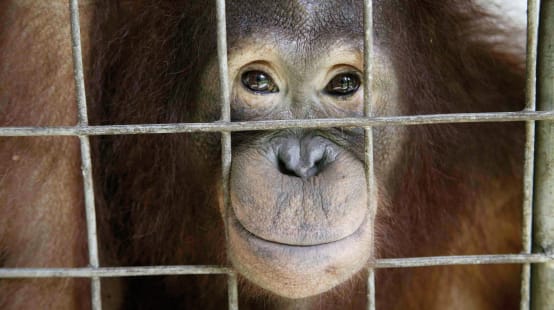Honduras: World Bank palm oil loans linked to murders
 The World Bank finances huge oil palm plantations in Honduras
The World Bank finances huge oil palm plantations in Honduras
In 2009, the World Bank lent $15 m to Dinant, an Honduran palm oil company implicated in violent land conflicts and murders. Although the World Bank’s Ombudsman is now looking into the project, a second instalment could soon be paid to Dinant. Please tell the World Bank to cancel the loan and prevent similar loans in future
Call to actionIn November 2009, the World Bank’s International Finance Corporation paid the first of two £15 million loan instalments to Grupo Dinant, a notorious palm oil company in Honduras. The money was paid shortly after a military coup had ousted the democratically elected President – a coup backed by Grupo Dinant’s CEO, Miguel Facusse.
Dinant’s oil palm plantations have been at the centre of land conflicts dating back to the 1970s. Since the coup, Dinant and another palm oil company have been implicated in the murder of around 80 peasants. Killings are continuing with complete impunity, the region around the plantations has been heavily militarised and long-standing peasant communities have been violently evicted. Yet the World Bank’s loan assessment – last updated in February 2013 – claims: “Dinant understands the importance of having good relationships with their neighbouring communities and are quite proactive in this regard.”
Following an NGO complaint by Rights Action, the World Bank’s Ombudsman is now considering whether all of the correct procedures have been followed. There is no guarantee that the World Bank will not pay the second $15 million instalment to Dinant – nor are they considering to formally withdraw the entire loan. And the Ombudsman’s remit is worryingly narrow.
Please sign the letter to the World Bank and tell them to cancel the loan and prevent similar loans in future
Miguel Facusse, owner and CEO or Grupo Dinant, is one of the richest and most powerful businessmen in Honduras. His company began to acquire large areas of land in Hondura’s Bajo Aguan region in the early 1990s, land which peasant communities had acquired under agrarian reform laws. According to a Human Rights lawyer, between 1992 and 1994,”three large landowners used a combination of fraud, coercion and violence to consolidate ownership of 73.4 per cent of the land transferred under the prior Agrarian Reform” in Bajo Aguan.
Today, Grupo Dinant, one of those landowners, occupies 22,000 hectares of the most fertile land. In 2009, President Zelaya had promised peasant communities legal titles to some of those lands. The same year, Zelaya was ousted by a military coup, which was internationally condemned and led to Honduras being suspended by the Organisation of American States. Miguel Facusse strongly backed the coup and has also been one of the main benefactors of the coup. Zelaya’s promises to return some of the lands occupied by Grupo Dinant to peasants were withdrawn. Peasant communities therefore so no option but to peacefully re-occupy some of the lands themselves.
Since the coup, around 80 peasants and their supporters have been murdered in Bajo Aguan in conflicts related to Grupo Dinant and another palm oil company. Long-standing peasant communities have been violently evicted and the region has become heavily militarised, with military, police and Facusse’s armed security forces acting in unison. Eyewitnesses consistently report the involvement of Facusse’s security forces in killings, kidnappings and other human rights abuses. Across Honduras, human rights violations are being committed with impunity.
The World Bank loan was approved shortly before the coup but paid out after it, in November 2009, when human rights abuses across Honduras had begun to escalate. World Bank documents related to the loan claim that no significant social impacts were foreseen, even though they state that Grupo Dinant had around 300 armed security guards, and even though the history of land conflicts was well known. The loan helped Facusse – and the Honduran post-coup regime – to gain international respectability, at a time when the Organisation of American States was calling on international organisations to review their links with Honduras. By financing a biogas plant at a palm oil mill, it also helped to ensure that Grupo Dinant’s palm oil would meet EU biofuel ‘sustainability standards’. Those standards ignore all human rights violations but make it difficult for palm oil to pass greenhouse gas standards without methane capture, i.e. without a biogas plant in this case.
The loan was conditional on Grupo Dinant reporting on any adverse social impacts yet despite the mounting evidence of the company’s subsequent involvement in many dozens of killings, it was never cancelled.
Following a complaint by Rights Action, the World Bank’s Ombudsman is now investigating whether World Bank procedures for ‘due diligence’ had been followed – a very narrow remit, which avoids the real questions involved.
This case shows how meaningless the World Bank’s ‘sustainability standards’, including for palm oil finance (resumed in 2011 after two years of suspension) are.
To: World Bank Group, 1818 H Street NW , Washington, DC 20433, USA
Dear Sir/Madam,
I am deeply concerned that a World Bank loan paid by the International Finance Corporation (IFC) to the Honduran plantation company Grupo Dinant in November 2009 has never been cancelled and that a second loan instalment of $15 million could be paid this year.
Although the Ombudsman (CAO) is currently investigating whether the World Bank followed its own standards and exercised ‘due diligence’, I fear that the remit of this investigation is far too narrow and does not address the real questions:
+ How did the World Bank come to lend money to a company that had been at the centre of land conflicts for several decades, shortly after a military coup backed by the company’s owner, and in the context of serious concerns over the new regime’s human rights record and widespread impunity?
+ Why did the World Bank give money to one of the richest in Honduras, one whose owner was supportive of and linked to the coup at a time when the Organisation of American States had suspended Honduras’s membership and had called on international institutions to review their relations with Honduras?
+ Why was the loan not cancelled when it became apparent that Dinant had breached the loan conditions by not disclosing its role in a large and growing number of murders and other human rights violations?
I believe that full answers to those questions must be disclosed and lead to a much wider review than solely of the loan granted to Grupo Dinant. It is unacceptable for the World Bank to invest in a country during or following a coup and in the face of international condemnation (e.g. by the Organisation of American States), and to invest in a country where human rights violations are being committed with impunity – especially when there are links between loan recipients and the regime in question. Furthermore, the case illustrates how meaningless supposed social and environmental ‘safeguards’ , including for palm oil investments are.
Meantime, Grupo Dinant must be found to be in breach in their loan conditions, the loan must be cancelled and no further funds must be paid out to the company.
Yours faithfully,
The issue – rainforest on our dinner tables and in our fuel tanks
At 66 million tons annually, palm oil is the most commonly produced vegetable oil. Its low world market price and properties that lend themselves to processed foods have led the food industry to use it in half of all supermarket products. Palm oil can be found in frozen pizzas, biscuits and margarine, as well as body creams, soaps, makeup, candles and detergents.
Few people realize that almost half of the palm oil imported into the EU is used as biofuel. Since 2009, the mandatory blending of biofuels into motor vehicle fuels has been a major cause of deforestation.
Oil palm plantations currently cover more than 27 million hectares of the Earth’s surface. Forests and human settlements have been destroyed and replaced by “green deserts” containing virtually no biodiversity on an area the size of New Zealand.
The impact – suffering and death in producer countries, climate havoc
The warm, humid climate of the tropics offers perfect growth conditions for oil palms. Day after day, huge tracts of rainforest in Southeast Asia, Latin America and Africa are being bulldozed or torched to make room for more plantations, releasing vast amounts of carbon into the atmosphere. As a consequence, Indonesia – the world’s largest producer of palm oil – temporarily surpassed the United States in terms of greenhouse gas emissions in 2015. With their CO2 and methane emissions, palm oil-based biofuels actually have three times the climate impact of traditional fossil fuels.
Palm oil is not only bad for the climate: As their forest habitat is cleared, endangered species such as the orangutan, Borneo elephant and Sumatran tiger are being pushed closer to extinction. Smallholders and indigenous people who have inhabited and protected the forest for generations are often brutally driven from their land. In Indonesia, more than 700 land conflicts are related to the palm oil industry. Human rights violations are everyday occurrences, even on supposedly “sustainable” and “organic” plantations.
As consumers, we are largely unaware of these broader issues, yet our daily palm oil consumption also impacts our health: refined palm oil contains large amounts of harmful fatty acid esters that are known to damage DNA and cause cancer.
The solution – a revolution on our dinner tables and in our fuel tanks
Only 70,000 orangutans still roam the forests of Southeast Asia, yet the EU’s biofuels policy is pushing them to the brink of extinction. Every new plantation on Borneo is destroying a further piece of their habitat. Stepping up the pressure on policymakers is a must if we want to save our tree-dwelling kin. Apart from that, however, there is still a lot we can do in day-to-day life.
Follow these simple tips to recognize, avoid and combat palm oil:
- Enjoy a home-cooked meal: Use your imagination: why not try almond-coconut-pear biscuits? Or pizza with potato and rosemary? A meal cooked from fresh ingredients beats processed foods containing palm oil every time. Oils such as sunflower, olive, rapeseed or flaxseed are ideal for cooking and baking.
- Read labels: As of December 2014, labeling regulations in the EU require food products to clearly indicate that they contain palm oil. However, in the case of non-food items such as cosmetics and cleaning products, a wide range of chemical names may still be used to hide the use of palm oil. A quick check of your favorite search engine will turn up palm oil-free alternatives, however.
- Remember that the customer is king: Ask your retailers for palm oil-free products. Write product manufacturers and ask them why they aren’t using domestic oils. Companies can be quite sensitive to issues that give their products a bad name, so inquiring with sales staff and contacting manufacturers can make a real difference. Public pressure and increased awareness of the problem have already prompted some producers to stop using palm oil.
- Sign petitions and write your elected representatives: Online campaigns put pressure on policymakers responsible for biofuels and palm oil imports. Have you already signed all of Rainforest Rescue’s petitions?
- Speak out: Protest marches and creative action on the street raise public and media awareness of the issue, which in turn steps up the pressure on policymakers.
- Leave your car at home: Whenever you can, walk, ride a bicycle or use public transport.
- Be informed and inform others: Big Business and governments would like us to believe that biofuels are good for the climate and that oil palm plantations are sustainable. Spread the word – share this information with your family and friends and encourage them to rethink their consumption habits. It’s in our hands!













 Recent successes
Recent successes